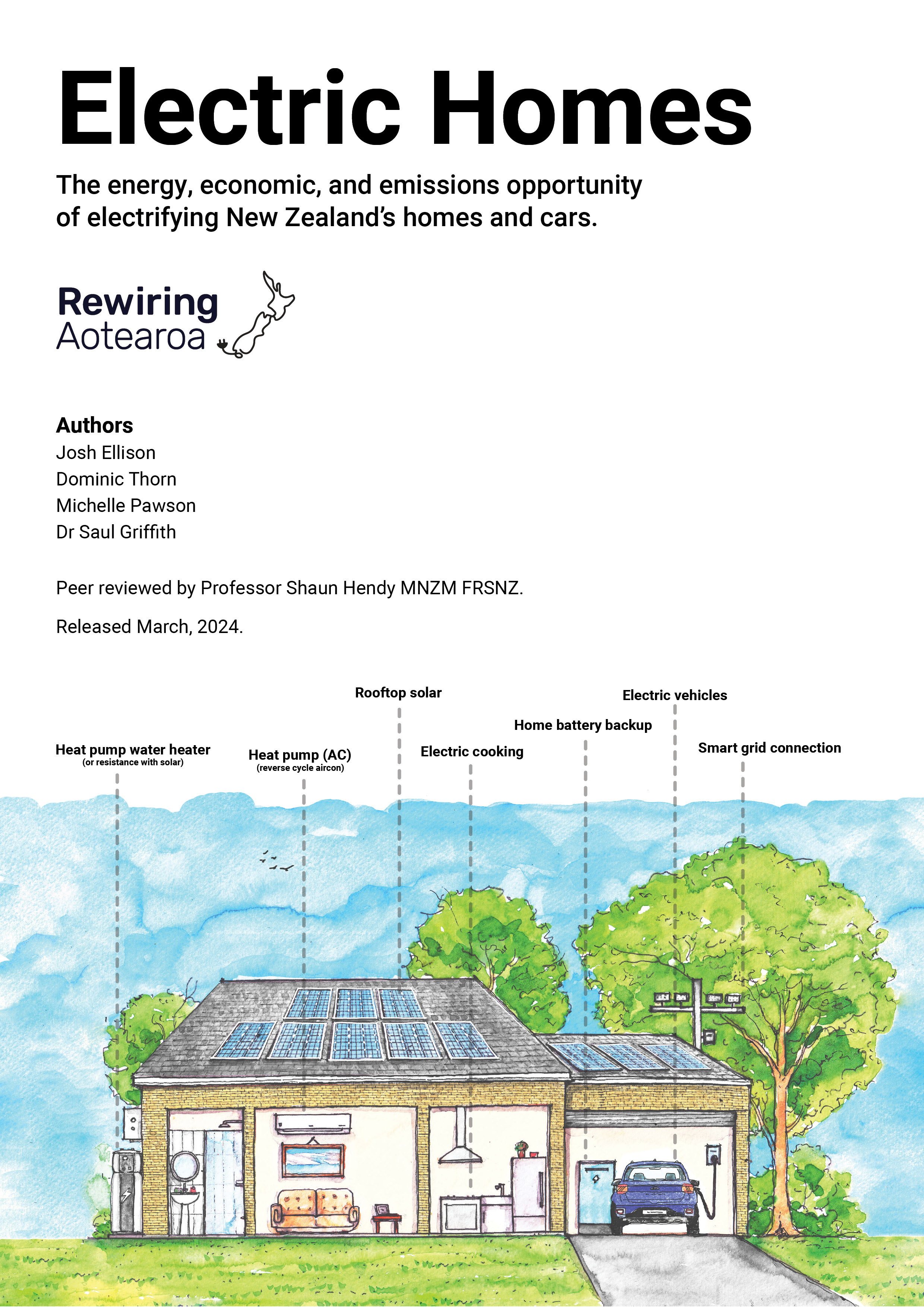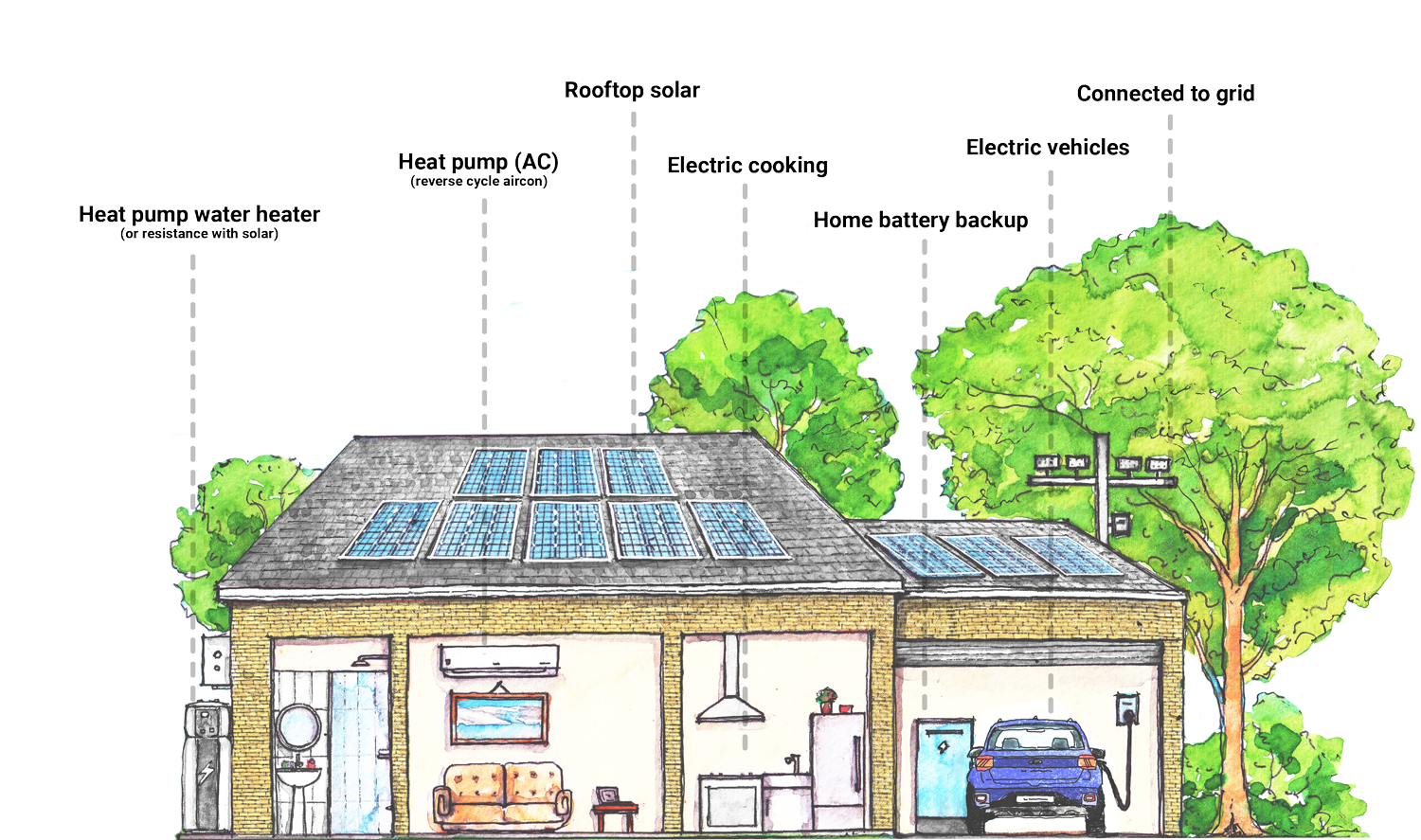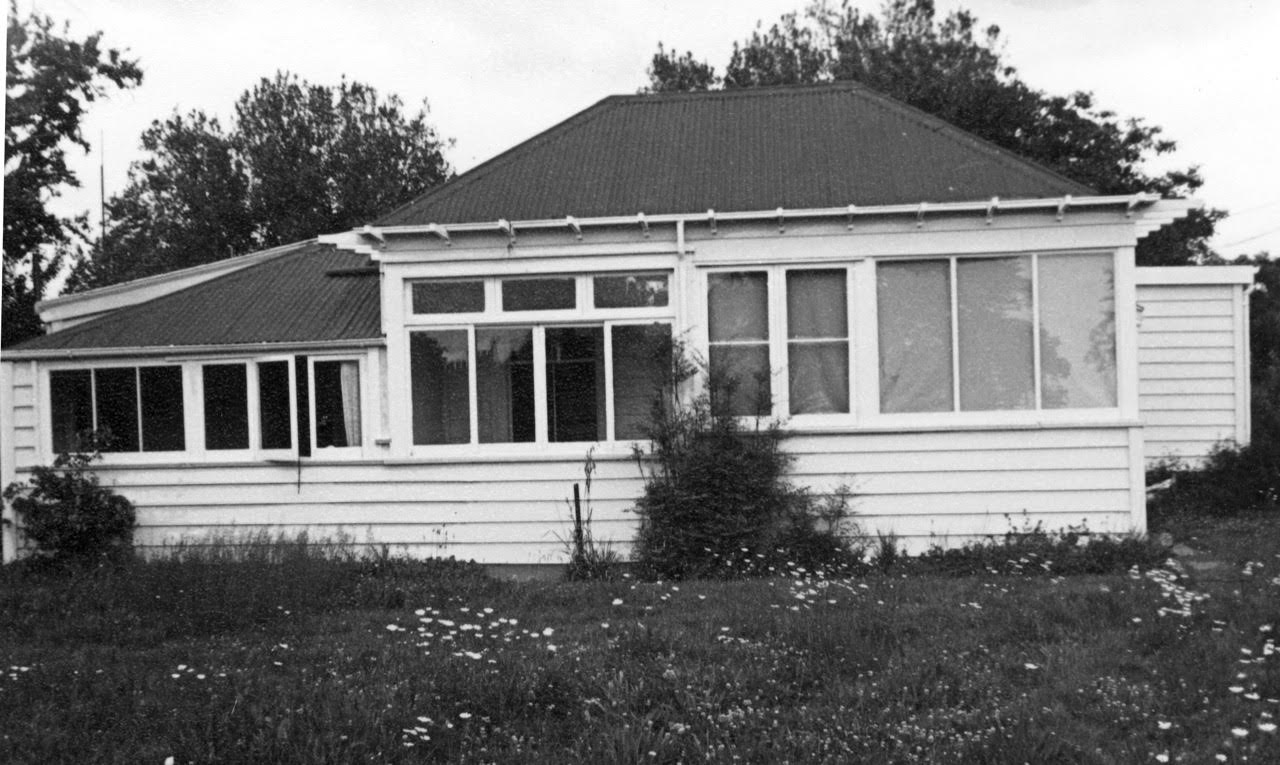Electric Homes Report
The Big Finding

Report highlights
New Zealand has reached the ‘electrification tipping point’
Rooftop solar is the lowest cost source of energy for New Zealand homes.
Individual decisions can make a big difference to emissions
Solving climate change is an opportunity for New Zealand

What's an electric home?
There are still a lot of households in New Zealand that burn fossil fuels for water heating, space heating, driving and cooking. An electric home swaps some or all of those fossil fuel machines for much more efficient electric equivalents and, if possible, adds solar panels to generate their own electricity and batteries to reduce their energy bills to store that electricity for when it’s needed.
New Zealand could lead the world - again
New Zealand has a long history of renewable electricity innovation. The world’s first all electric home with the world’s first practical electric home water heater was designed by engineer Lloyd Mandeno and powered by renewable hydro electricity in the early days of New Zealand’s hydro electricity boom. Around 1888, New Zealand had the southern hemisphere’s first electric public lighting in Reefton, and the world’s first electric gold dredge around 1890. In 1958, New Zealand built the world’s first wet steam geothermal electricity power station.
There are sparks of this world-leading Kiwi ingenuity again, from community energy projects to what is believed to be the world’s first electrified zero fossil fuel fruit orchard, including New Zealand’s first electric tractor imported from the USA. With this rich electrical heritage, a longstanding love of self-sufficiency and a highly renewable electricity grid, New Zealand has a unique opportunity to become one of the world’s most electric economies.
Find out more about Rewiring Aotearoa CEO Mike Casey’s electrification journey here.

This is an image of the all electric house engineered by Lloyd Mandeno (born 1888) and is believed to be the world’s first all electric home, powered by New Zealand’s hydro electricity boom around 100 years ago.
Here's what we need to make that happen.
Make finance accessible for all New Zealanders
Access to finance - either through public or private sources - will be crucial to ensure every New Zealander, no matter their income level, has access to the economic and environmental benefits electrification can provide.
Electrification needs to be a focus for emissions reduction
Electrification of households and businesses is the low-hanging fruit of emissions reduction. We can make progress towards meeting our emissions reductions targets at negative cost through rapid electrification of our domestic economy and reduce our dependence on carbon offsetting.
Fairly reward homes for their contribution to the energy system
Our electricity system should incentivise greater involvement from households and businesses and pay them fairly for their contributions. The market and the rules governing it need to be redesigned accordingly.
About Rewiring Aotearoa
Rewiring Aotearoa is an independent non-partisan non-profit. It is a registered charity working on energy, climate, and electrification research, advocacy, and supporting communities through the energy transition. The team consists of New Zealand energy, policy, and community outreach experts who have demonstrated experience both locally and internationally.
We're in it for you. We’re always fighting for the New Zealanders who use the energy system. Our work gives households and businesses the information and inspiration they need to make decisions that will reduce their costs and their carbon emissions.
Our Purpose
By combining research, communication and demonstration, Rewiring Aotearoa will accelerate climate action and transform the energy system to benefit all New Zealanders.
Our Team
Rewiring Aotearoa is a group of New Zealand leaders who work within the climate, energy, policy, data and storytelling space. We believe the cross section of these skills will help us rapidly electrify Aotearoa New Zealand.
Our Funding
Rewiring Aotearoa’s New Zealand-based team is primarily funded by a group of New Zealand-based philanthropists, with a small chunk of funding generated through projects and donations from supporters.










Peer review comments
"This is an important and timely report that deserves considerable attention."
Professor Shaun Hendy (MNZM FRSNZ).
“This is an important and timely report that deserves considerable attention. The report finds that electrification is financially favourable for a typical New Zealand household today, taking into account the current cost of capital. Electrification also generates considerable savings in domestic emissions for these households. Using the report, I estimate that household electrification could eliminate approximately 10% of the current national greenhouse gas inventory. This is significant, but barely accounted for in New Zealand’s Emissions Reduction Plan.
This report also has implications for New Zealand’s future energy system. The impact of local supply via rooftop solar has been greatly underestimated, and rooftop solar plus batteries could and should play a significant role in expanding electricity generation in the grid.”